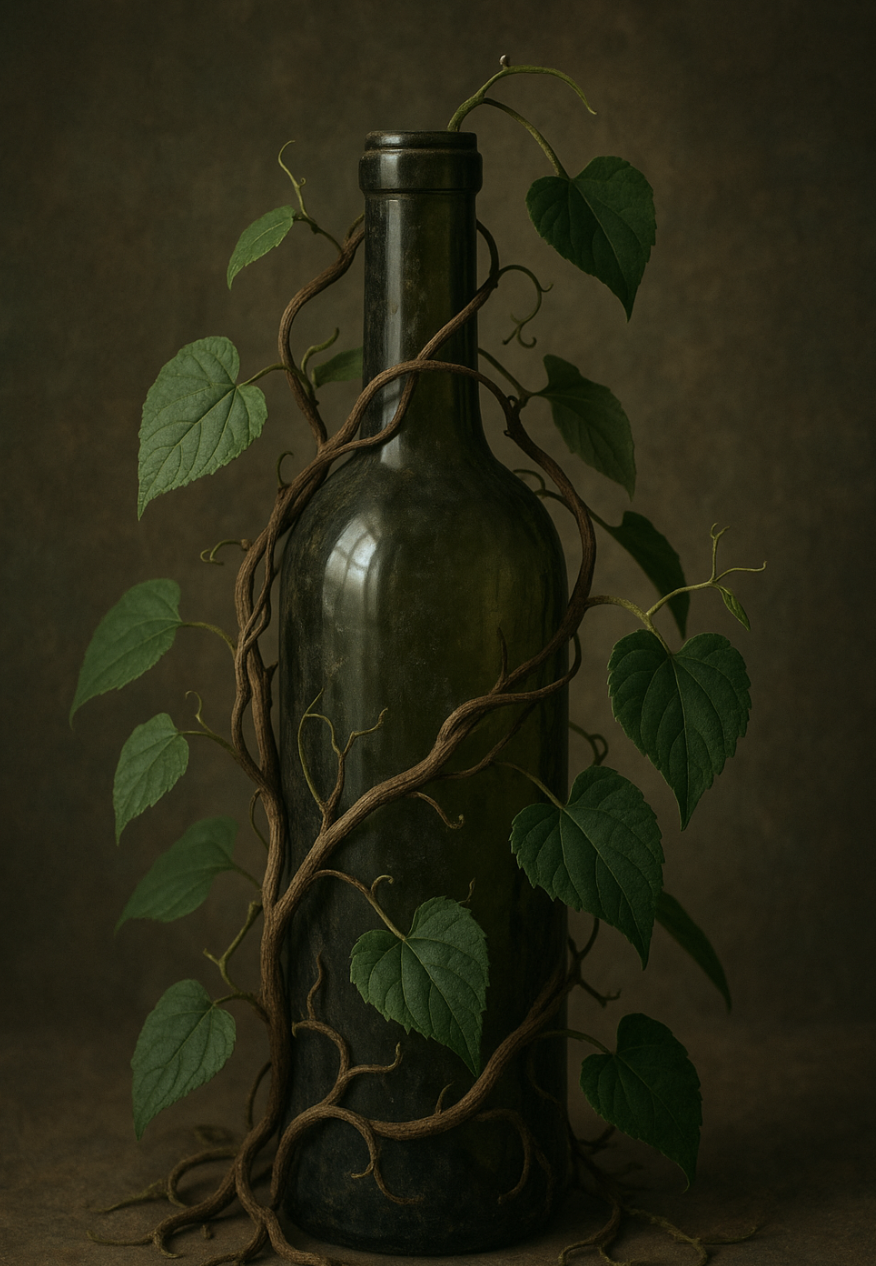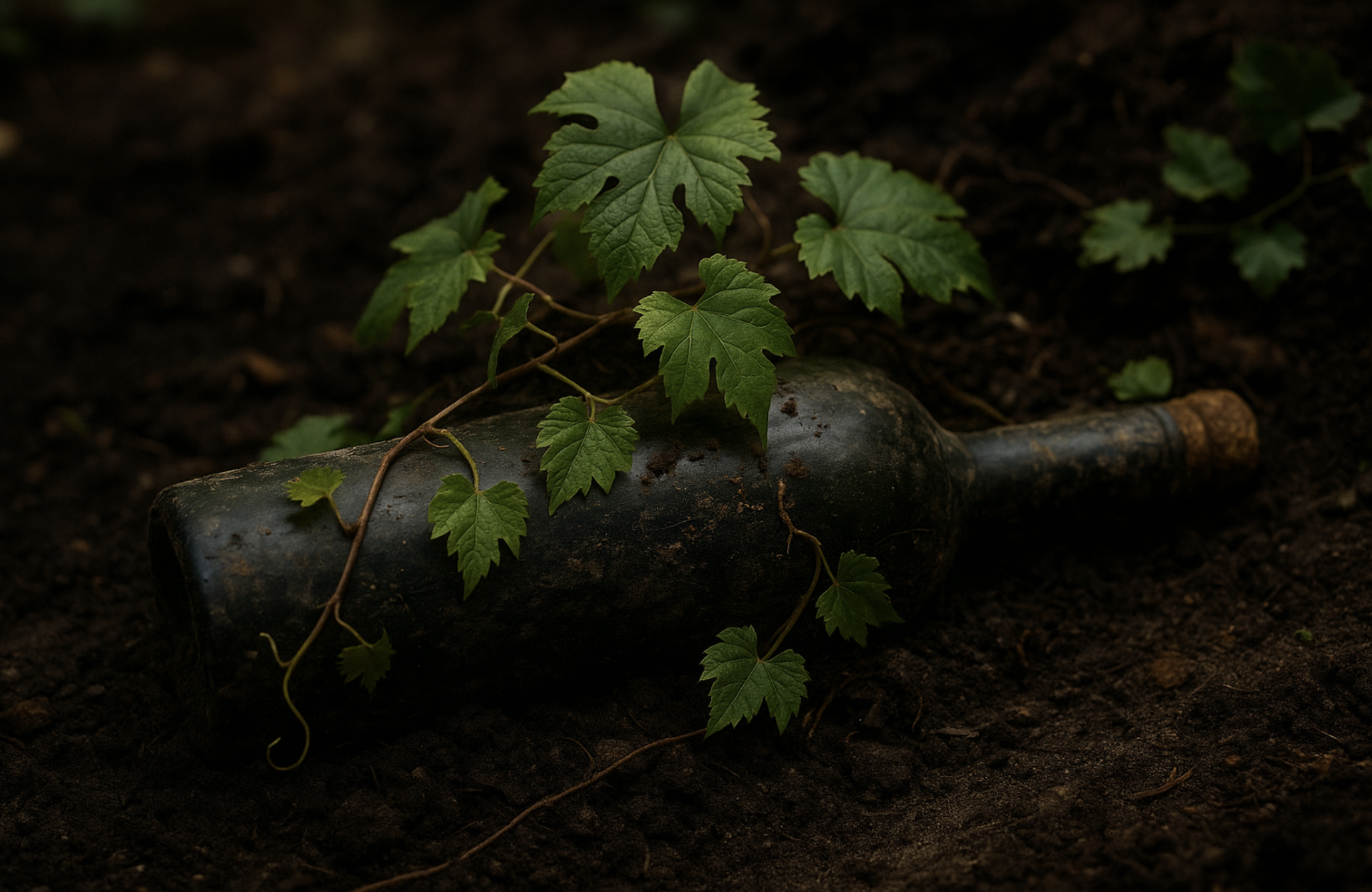Organic vs. Biodynamic Wine: What’s the Real Difference?
You’re standing in the wine aisle, cradling a bottle that boasts organic grapes and another labeled biodynamic-certified. The fonts are elegant, the claims are earthy and hippie-loving, both whisper promises of purity and planet love.
But, umm, what do they actually mean?
Is one better? Greener? More spiritual? More delicious?
The truth is, the difference between organic and biodynamic wine is subtle in practice, but vast in philosophy, and once you understand it, you’ll never read a wine label the same way again.
What’s “Natural” Wine?
Before we go granular, it helps to understand the broader umbrella.
“Natural wine” is not an official certification…it’s more of a philosophy. A loose term that includes wines made with minimal intervention, often from organic or biodynamic grapes, and with little to no additives. It’s something I believe a lot of marketing companies have capitalized on more than they should at this point in time. People throw around the term natural wine and when you ask them what makes it natural they say it was grown in the earth. Yeah, no shit.
Within that blurry category (that I believe means absolutely nothing), organic and biodynamic wines have actual specific definitions.
They start where all wine begins, in the vineyard and in the dirt.
Organic Wine: Cleaner Farming, Still Familiar
Organic wine (depending on your country) is made from grapes grown without synthetic pesticides, herbicides, or fertilizers. The soil is nourished with compost and cover crops, not chemicals. That’s the basic theory behind it anyway.
In the U.S., if a wine is labeled “organic wine,” it also can’t contain added sulfites (a natural preservative). In the EU and elsewhere, organic wine can have some sulfites…just lower than conventional limits.
This creates a strange split where organic grapes just refers to the fruit, but organic wine means the whole process, from grape to glass to cork, meets organic standards.
Think of it like clean farming meets clean fermentation.
You do need to pay for this certification, so some farmers might say “organically farmed” to show that they are organic without paying for the certification.
Still others might say something like “made with organic grapes”, which could very well indicate the grape were grown organically, but maybe not treated organically after they were picked.
People like organic wines for the same reason you like to buy organic strawberries at Whole Foods. Fewer synthetic residues in the wine and the soil when there’s less sprayed schite out there, and it supports more sustainable agriculture. Organic wines often have more transparent labeling which is also helpful while you’re standing in the busy grocery store and you don’t have time to Google the wine.
But it’s still wine made in a fairly modern way, with temperature control, filtration, cultured yeast, and precision.
Also, a recent study showed some organic items in a grocery store had more chemical traces than their non-organic cousins. Do with this information what you will.
Biodynamic Wine: The Cosmic Sibling
Now let’s step into the vineyard after midnight under a waxing moon, a winemaker buries cow horns filled with fermented manure beneath the vines. Herbal teas are sprayed over the soil, while planting and pruning are scheduled based on astrological calendars.
This isn’t some strange witchcraft, this is biodynamics.
Biodynamics was founded in the 1920s by Rudolf Steiner, the same philosopher who developed Waldorf education. He believed in a farm as a self-sustaining organism, one that honors the rhythms of the Earth, moon, and stars.
In biodynamic viticulture no synthetic chemicals are allowed, the vineyard is treated with “preparations” (like fermented dandelion or horsetail), and absolutely everything is timed to the biodynamic calendar, which divides days into root, flower, leaf, or fruit…each better suited for specific tasks.
It’s organic farming…but on crack and with more reverence.
A lot of people ask me if this works. Well, science hasn’t fully validated the lunar aspects or herbal rituals (don’t forget the moon does have an effect on plants!), but studies show biodynamic vineyards have higher soil biodiversity which is super helpful. A lot of these vineyards are more resilient to disease and drought and often produce exceptional wines.
Many of the world’s top wineries (Domaine Leflaive in Burgundy, Château Palmer in Bordeaux, the list goes on and on) have gone biodynamic not for marketing, but for quality.
Whether or not the moon matters, the intentionality shows up in the bottle. If the stars are making the wines exceptional or the attention to detail…well, I’m not really sure and the jury is out.
Can You Tell the Difference?
Sometimes yes, sometimes no. More often than not…no. Not unless you know what you are looking for or happen to be a sommelier practicing their blind tasting.
Organic wines tend to taste cleaner, brighter, and more straightforward, especially from “New World” producers.
Biodynamic wines sometimes taste earthier, wilder, and more soulful (add a little funk maybe?). Not because the moon changed the pH, but because the farming was so hands-on, and the winemaking so hands-off.
You’ll often find less manipulation on these wines with native yeasts fermentations, which definitely imparts its own flavors. No fining or filtering seems to be the norm in these wines as well as a texture that feels alive.
Some call it funk (yours truly), while others call it truth.
Certification Confusion
Like I mentioned earlier, not every wine made organically or biodynamically is certified.
Certification can be expensive, bureaucratic, or not align with a winemaker’s values. Some do the work but skip the label, while others label freely but cut corners.
So how do you know?
Sorry to say there isn’t one good solid answer for this one. Ask questions, visit websites, trust good importers, maybe even send a message to ChatGPT. Transparency is the new terroir and a lot of winemakers are falling short on it.
If you’re vegan you might want to perk up at this point because not all biodynamic wine is vegan-friendly.
Remember those cow horns and other animal-derived preparations I told you about? That said, many biodynamic producers do make vegan wines, or let you know when they don’t. Again, transparency matters more than labels.
Also, farming without chemicals, often by hand, with rituals and rotations and compost teas…it takes labor and takes time. Your price will most likely reflect that. The cost isn’t just for the wine, it’s also for the philosophy inside the bottle.
So Which Should You Choose?
If you want clean farming, “fewer chemicals”, and good-for-the-earth wine then go organic.
If you want a wine that reflects not just a place, but a worldview, fermentation aligned with full moons (spooky), and a bottle that feels like it came from an emotional roller-coaster of a poem, then try biodynamic.
And if you want both look for organic grapes, biodynamic practices, and minimal intervention winemaking. Those bottles are magic, but really, spoiled grape juice always was.


